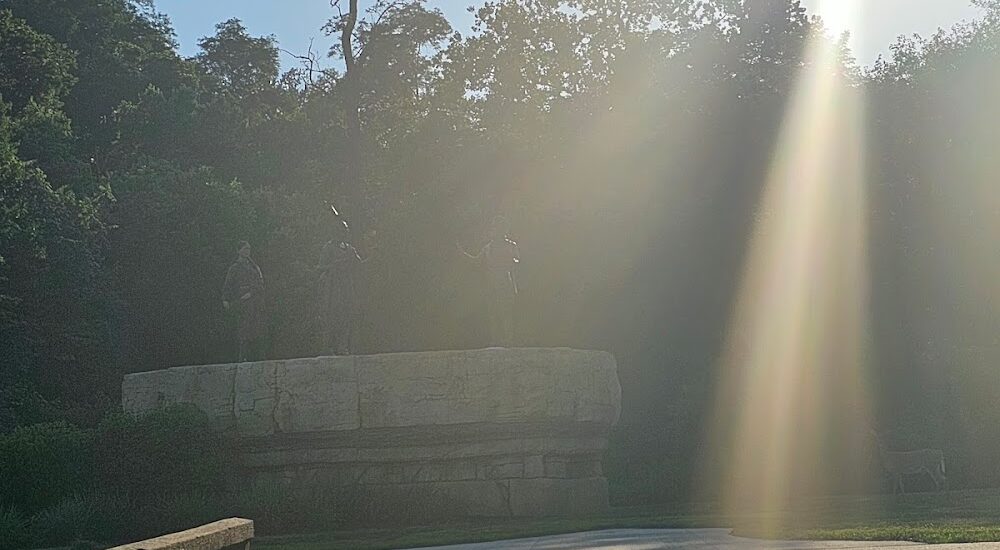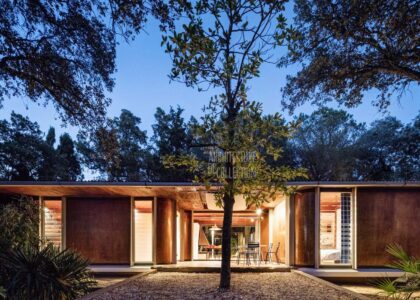Welcome to the Francois Chouteau and Native American Heritage Monument in Kansas City, Missouri—a site rich with historical significance. This monument stands as a tribute to the foundational moments of Kansas City’s history and its complex relationship with Native American tribes.
The monument commemorates François Chouteau, a pioneering fur trader often hailed as the ‘Father of Kansas City.’ Born into the illustrious Chouteau family, François leveraged his family’s fur trading legacy to establish the first permanent European-American settlement in the region. In 1821, he and his wife Bérénice chose this site, a strategic location at the confluence of the Missouri and Kansas Rivers, to set up a trading post. This was not just a business venture but a cultural crossroads where French Creole traders and various Native American tribes, including the Osage and Kansa, came together.
The area, originally known as ‘Chez les Cansès,’ became a vibrant hub of trade and cultural exchange. François and Bérénice Chouteau played pivotal roles in fostering relationships with the local Native American communities, which were integral to the fur trade. Their efforts laid the groundwork for what would become Kansas City.
The monument you see today is adorned with larger-than-life sculptures by renowned sculptor Kwan Wu. These works of art capture the essence of the early trading encounters that occurred here, depicting scenes of trade between Chouteau and Native Americans. Despite the challenges of modern-day vandalism, which have seen parts of the monument stolen, the site remains a powerful symbol of the city’s early history.
This location is more than a memorial; it is a reminder of the interconnected pasts of the European settlers and Native American tribes. As you explore the Francois Chouteau and Native American Heritage Monument, consider the stories of cooperation, conflict, and cultural blending that have shaped Kansas City into the vibrant city it is today.






